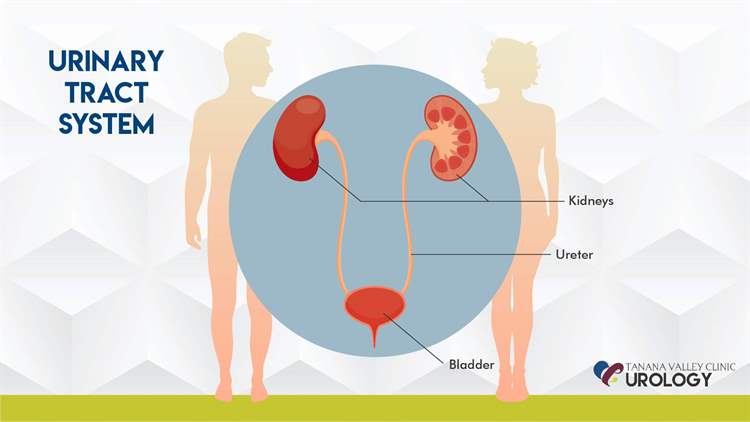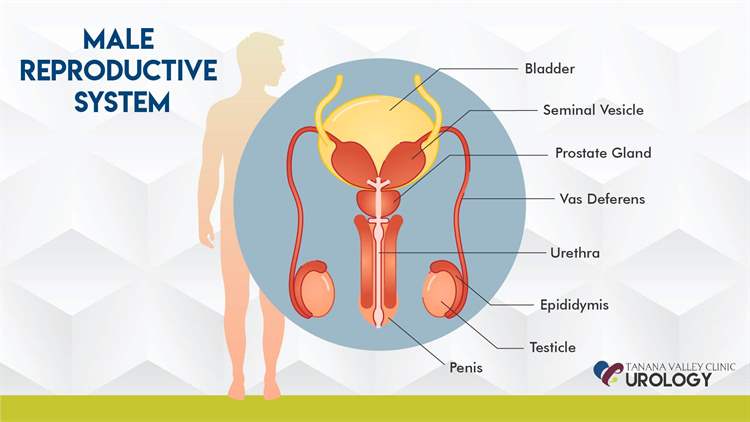 Most people take for granted the ability to urinate, process the foods we eat and drink and to reproduce, and it can be concerning when something isn’t quite right. As men age, problems with urinary and reproductive systems become more prevalent. The symptoms are quite common and are often considered a natural part of aging. However, at times they can become bothersome or signal a significant underlying problem.
Most people take for granted the ability to urinate, process the foods we eat and drink and to reproduce, and it can be concerning when something isn’t quite right. As men age, problems with urinary and reproductive systems become more prevalent. The symptoms are quite common and are often considered a natural part of aging. However, at times they can become bothersome or signal a significant underlying problem.
Urologists treat conditions involving the urinary tract and the male reproductive system. This includes any part of the urinary system (kidneys, ureters, bladder, urethra, adrenal glands) and all parts of the male reproductive system (penis, prostate, testicles).
To help understand when you should talk to your doctor, here are five symptoms that men should never ignore:
- Blood in your urine (hematuria). Visit your urologist immediately if you see blood, as it could be an early warning sign of bladder cancer, kidney cancer, or kidney stones. Even if you only experience blood in your urine once, it is a symptom that requires immediate attention.
- Pain or burning while urinating. Painful urination is common and pain, burning, or stinging can indicate a number of medical conditions. Most frequently it is caused by an infection in the urinary tract, though scar tissue and cancer can occasionally be the cause as well. A urologist can determine if an infection is present and recommend targeted treatment to alleviate the pain and rule out more worrisome causes.
- Increased difficulty urinating. Changes in urination can happen for different reasons and are typically noticeable as changes in urinary frequency, urgency, straining to void, or a weak urinary stream. Often harmless, these changes are commonly related to the prostate, though could also be caused by neurologic disease, diet, or medications.
- An abnormal Prostate Specific Antigen (PSA) level. You may receive a PSA test as part of your regular primary care visit. The PSA test is often used to screen for prostate cancer. Typically, a very low level of PSA is found in the bloodstream. When there is a change or a higher level of PSA in the blood, a urologist can help determine the cause.
- Scrotal/testicular pain, lumps or masses. Any pain, masses, firmness or nodules in the scrotum should be examined by a urologist. If the mass is determined to be cancerous, it’s important to keep time on your side. When caught early, cancer found in the testes is one of the most curable cancers.

Don’t wait until it’s too late! If you are experiencing any of these symptoms, please contact your primary care provider or a urologist to discuss your concerns.
Herbert J. Wiser, MD is a member of the Tanana Valley Clinic Urology Department.
 Most people take for granted the ability to urinate, process the foods we eat and drink and to reproduce, and it can be concerning when something isn’t quite right. As men age, problems with urinary and reproductive systems become more prevalent. The symptoms are quite common and are often considered a natural part of aging. However, at times they can become bothersome or signal a significant underlying problem.
Most people take for granted the ability to urinate, process the foods we eat and drink and to reproduce, and it can be concerning when something isn’t quite right. As men age, problems with urinary and reproductive systems become more prevalent. The symptoms are quite common and are often considered a natural part of aging. However, at times they can become bothersome or signal a significant underlying problem. 
